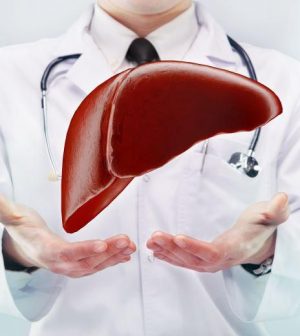- The Best Time of Day to Drink Bone Broth to Maximize Health Benefits
- 8 Ways to Increase Dopamine Naturally
- 7 Best Breads for Maintaining Stable Blood Sugar
- Gelatin vs. Collagen: Which is Best for Skin, Nails, and Joints?
- The Long-Term Effects of Daily Turmeric Supplements on Liver Health
- Could Your Grocery Store Meat Be Causing Recurring UTIs?
- Are You Making This Expensive Thermostat Error This Winter?
- Recognizing the Signs of Hypothyroidism
- 10 Strategies to Overcome Insomnia
- Could Artificial Sweeteners Be Aging the Brain Faster?
Big Spike in Alcoholic Liver Disease Early in Pandemic

The early months of the COVID-19 pandemic brought a big jump in hospitalizations for life-threatening alcoholic hepatitis at a Detroit health system, new research shows.
Alcoholic hepatitis is a liver disease caused by heavy drinking, and these findings add to mounting evidence that many Americans turned to alcohol in an attempt to deal with pandemic stress. U.S. alcohol sales rose 54% in the pandemic’s first week alone.
“This is an eye opener for how much the increase in alcohol use has affected us as a community,” said lead author Dr. Humberto Gonzalez, a transplant hepatologist with the Henry Ford Health System.
For the new study, his team compared alcoholic hepatitis admissions to the Henry Ford Health System between May and September 2020, and the same months in 2016, 2017, 2018 and 2019.
In those five months of 2020, 93 patients were hospitalized with alcoholic hepatitis, an average of 18.6 a month. That was 50% more than the 12.2 average for the same months between 2016 and 2019.
The average age of people hospitalized in 2020 was 47, compared with 45 in the other years. Women accounted for 45% of hospital admissions in 2020, compared with 41% in the other years, according to findings recently published in the journal Liver International.
Gonzalez called the findings alarming.
“Being hospitalized for alcoholic hepatitis changes the severity of the problem,” he said in a health system news release. “We need to work on coping strategies for this never-ending health crisis.”
More than 120,000 people in the United States are hospitalized with alcoholic hepatitis each year, and the average 28-day death rate is 26%.
The disease has no cure and no U.S. Food and Drug Administration-approved treatments. In many cases, a liver transplant is the only option for survival.
Early warning signs of alcoholic hepatitis are jaundice, a yellowing of the skin or whites of the eyes, and a buildup of fluid that causes swelling in the abdomen and lower extremities.
More information
American Addiction Centers has more about alcoholic hepatitis.
SOURCE: Henry Ford Health System, news release, Feb. 8, 2022
Source: HealthDay
Copyright © 2026 HealthDay. All rights reserved.










